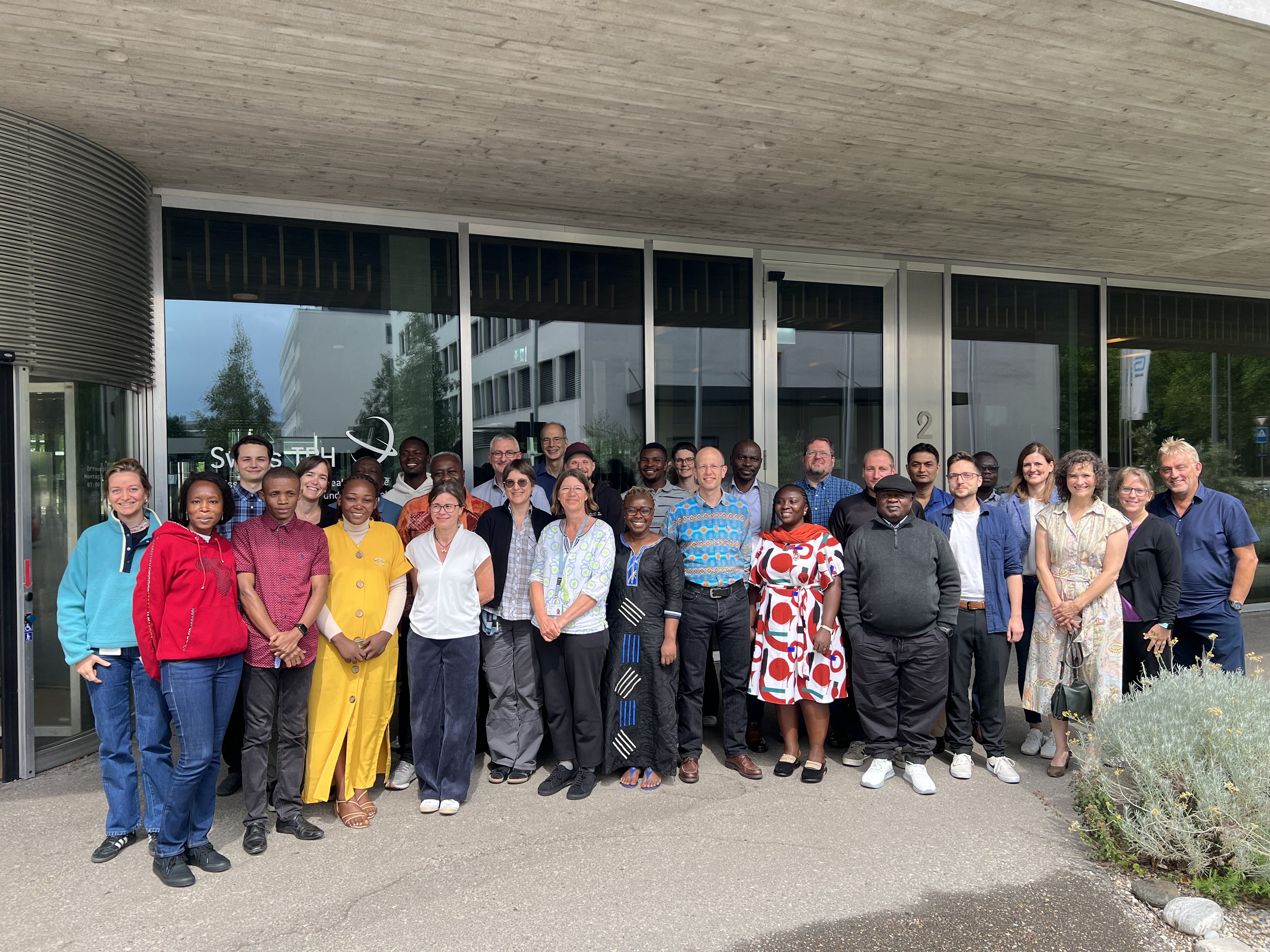eWHORM Partners meet in Basel, Switzerland for their second Progress Meeting
Earlier in July 2025, Switzerland gathered key representatives of the fight against NTDs and helminthiases as the eWHORM consortium met at the Swiss Tropical and Public Health Institute for their second general assembly.
More than 30 participants representing the partners from Gabon, Germany, Cameroon, Switzerland, Austria and DRC were thrilled to have the opportunity to meet and discuss the progress of the project.
2025 is namely a great milestone for eWHORM, as the ethics and regulatory approvals necessary for the clinical trials were all requested and accepted for the clinical trial countries.
Prof. Dr. Marc Hübner from the University Hospital Bonn and coordinator of eWHORM, highlights the tremendous work undergone by the consortium partners:
It is great to see that the project has completed yet another milestone. With the approvals obtained in all the clinical trial sites, the kick-off of the first filariasis trials will start soon and the treatments of the trial sponsored by Swiss TPH on Pemba Island in Tanzania have already been completed. This means that very precious data will be gathered and further analysed, allowing us to keep the work on the establishment of a basket trial to combat helminthiases.
The presentation made by Swiss TPH about the trichuris study performed on Pemba Island in Tanzania kicked off the outline of the clinical trial activities. CERMEL provided thereafter the next steps necessary for the loaisis Study in Gabon, while the University of Buea offered a glimpse of the activities to be conducted with mansonellosis in Cameroon. Lastly, INRB gave an overview of the onchocerciasis study to be performed in DRC.
“The next steps will be crucial as the medical monitoring, recruitment, and mid-term analysis will play a key aspect of the filarial trials”, explains Marc Hübner.
The next steps were also presented, putting the spotlight on the updates achieved on LAMP assays specifically on soil-transmitted helminths. The transfer and adaptability of these assays in Gabon, DRC and Tanzania is expected by the end of 2025, which will as well play a role in providing input for the training modules and the capacity building activities led by BNITM.
Lastly, eWHORM kept its engagement on collaborating with similar international initiatives; the sister project SNIP AFRICA as well as the Horizon project STOP2030 were presented, and their respective coordinators could engage into synergies with the eWHORM consortium.
The meeting concluded with the promise to meet next year at the facilities of CERMEL in Gabon in order for the consortium to visit the clinical trial activities undergone there as well as engage in further capacity building activities. This will nurture the foundation of eWHORM as facilitator of North-South and South-South collaboration as well as providing new perspectives of fighting NTDs through the establishment of an adaptive clinical trial platform.
The adventure continues!
!